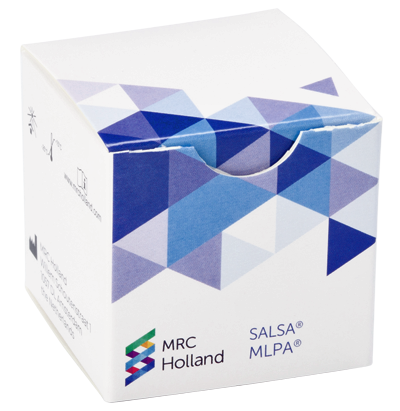P118 WT1

SALSA MLPA Probemix P118 WT1 detects copy number variations in the WT1 region and the AMER1 gene.

Contents: 34 MLPA probes, including 11 probes for the WT1 region (covering all WT1 exons), and 3 probes for AMER1.

Tissue: human genomic DNA.

Application: research on Wilms' tumour.

For research use only (RUO). Not for use in diagnostics.

